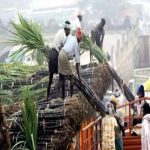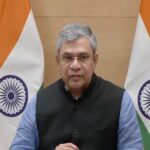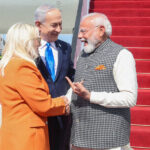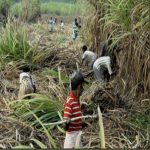Jailed former Prime Minister Imran Khan launched a fierce attack on the government on Tuesday, calling for investigations into two major financial scandals: a Rs 300 billion wheat procurement fraud and a sugar price manipulation scheme of similar scale, according to the media reports.
In a post shared on X, Khan, who claims to be in solitary confinement, demanded immediate probes into the alleged wheat and sugar scandals. He accused sugar mill owners of benefiting by approximately Rs 300 billion from price hikes alone.
Khan linked the wheat fraud to the 2022 caretaker government in Punjab, led by Mohsin Naqvi—now serving as interior minister—and attributed the recent sugar crisis to the current administration under Prime Minister Shehbaz Sharif. He called for accountability and punishment for those involved.
“The nation must ask: What happened to these scandals? Who is being held responsible?” Khan said, urging citizens to demand justice and investigations into both cases.
He criticized the Sharif administration for fostering a culture of “impunity” and warned of an increasing trend of unaccountability across the country’s institutions.
Khan’s remarks come at a time when public anger is rising due to soaring food prices, particularly among low-income communities where the cost of essentials like flour and sugar has become unbearable.
The former prime minister, ousted in 2022 and facing multiple legal battles, described his imprisonment as part of a broader effort to stifle political dissent. He claimed that he has been kept in isolation for over two years and has been denied access to legal counsel, family visits, and the media. “I have not been allowed to meet even my political colleagues,” he added, alleging that the conditions are meant to “break his spirit.”
In a direct message to Army Chief Gen Asim Munir, Khan asserted that the continued imprisonment of his family members and allies would not change his position. “I will neither submit nor accept this injustice,” he vowed.
Khan also expressed frustration with Pakistan’s Afghanistan policy, accusing the military establishment of undermining diplomatic relations with Kabul for short-term political gain. He also voiced concern over the treatment of Afghan refugees, many of whom face deportation despite having lived in Pakistan for decades.
“If Maryam Nawaz can travel to Japan and Thailand, why can’t the chief minister of Khyber Pakhtunkhwa visit Afghanistan for peace?” Khan asked, advocating for cross-border engagement and dialogue.
The former prime minister condemned recent military operations and drone strikes in Khyber Pakhtunkhwa, warning that they could destabilize the region further. He accused the federal government of exacerbating conditions in flood-hit and conflict-prone areas to undermine the PTI-led provincial government.
“Until this operation stops, the people’s plight will worsen, and terrorism will escalate,” Khan cautioned, urging Khyber Pakhtunkhwa Chief Minister Ali Amin Gandapur to resist military interference in the province.
Khan, known for his leadership in national relief efforts, lamented that he had been unable to oversee aid distribution in flood-affected areas due to his imprisonment. “I urge all Pakistanis to unite and support those in need,” he said.
Additionally, Khan condemned a recent attack on a rally in Balochistan led by Akhtar Mengal, calling for PTI supporters to peacefully protest what he described as the shrinking space for political expression in Pakistan.















